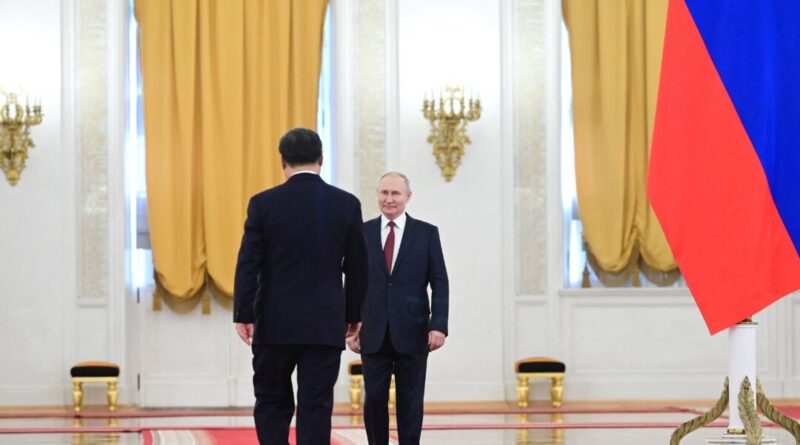Russian official aims to maintain equilibrium in relations with US and China
Russian Deputy Prime Minister Alexey Overchuk emphasizes that Moscow aims to maintain a balanced relationship with both Washington and Beijing.
The Kremlin is focused on striking a balance between its ties with the United States and its military and economic partnership with communist China, as stated by a senior Russian official.
During an address at the Boao Forum in China’s Hainan Province on March 27, Russian Deputy Prime Minister Alexey Overchuk remarked, “We should not favor developing relations with one country at the expense of another; instead, we should aim for balanced interactions among Russia, China, and the United States,” according to a translation of his comments initially reported by Bloomberg.
Overchuk also expressed Moscow’s commitment to working closely with Beijing to implement and expand a strategic agreement signed between the two nations in 2023.
According to Chinese state media, Overchuk also expressed optimism for the future of the strategic partnership, foreseeing further advancements as Russia and China deepen their collaboration.
Overchuk highlighted that Russia has managed to withstand Western sanctions related to its conflict in Ukraine, largely due to the support from China, which has significantly increased its imports of Russian energy and other products.
Chinese Vice Premier Ding Xuexiang, a prominent figure in the Chinese Communist Party’s (CCP) Politburo Standing Committee, mentioned having already met with Overchuk twice this year, affirming their mutual commitment to enhancing government relations.
Overchuk echoed this commitment by stating his intention to explore avenues for expanding cooperation with China further.
He expressed, “Both sides are eager to explore opportunities for strengthening these ties, as both countries face external pressures. We naturally seek ways to collaborate and cooperate to enhance the quality of life for our citizens.”
These statements coincide with Moscow’s efforts to reestablish economic and diplomatic relations with the new U.S. administration, while discouraging American and allied arms deliveries to Ukraine.
President Donald Trump has advocated for reconciliation with Russia, aiming to fully reintegrate the country into the global economic and diplomatic arena.
Despite these challenges, the Trump administration remains open to the idea of closer cooperation between Russia and China, seeking to engage both countries in discussions on various issues, including military expenses and nuclear disarmament.





